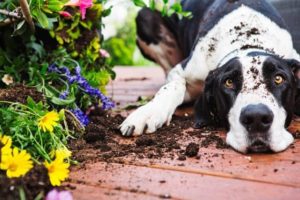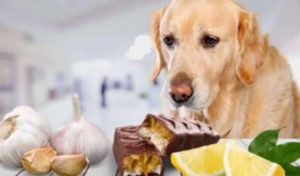Common Houseplants That Are Toxic to Your Pets
A cozy home full of beautiful blooming plants is wonderful sight to many of us, but to our younger furry companions such a luscious indoor garden could be a risky scene.
Don’t worry, this article won’t make you chose between your four legged or four leaved friends as generally, mature cats and dogs will not munch on toxic house plants – so its safe to keep them around.
However, much younger puppies and kittens who can’t seem to keep their gnawing teeth off anything in the house might act otherwise. It is recommended that when you are puppy/kitten proofing your home, you educate yourself on the dangers some common household plants present and take precautionary actions as necessary. This is often as simple as moving the toxic plants in your home to rooms/heights which are out of your pets reach.
Below is a list illustrating some of the most common pet-toxic household plants:
Lilies
Many members of the Lily family are toxic to both dogs and cats. Common examples include the Mauna Loa (Peace Lily), Daylilies, Tiger lilies, and the Lily of The Valley which are all toxic to dogs and cats. Stargazer and Easter Lilies are extremely toxic to cats, but not dogs.

Dumb Cane
Dieffenbachia (more commonly known as Dumb Cane), is highly toxic to both dogs and cats. It is recommended that Dumb Cane is kept out reach of puppies and kittens as upon ingestion, severe irritation, breathing problems, and even death can occur.

Elephant Ear (Taro)
Elephant Ear causes a similar reaction to that of Dumb Cane (as they have the same chemical toxins). Ingestion results in oral problems such as drooling, vomiting, and difficulty swallowing.

Ivy
Common Ivy (including English and Devil’s Ivy) is harmful to both cats and dogs. It irritates their oral cavity, which results in vomiting and drooling.

Sago Palm
Every part of the Sago Palm plant is toxic to your pet, ingestion can lead to vomiting, diarrhea, and even liver failure.

Aloe
A beautiful leaf succulent often consumed by humans, but toxic to dogs upon ingestion.

Eucalyptus
While the strong sent of Eucalyptus and Eucalyptus oil (a favorite oil in household diffusers) is loved by many people, our pets don’t share the same feelings. The plant and its oils can be irritating to your pet, as it is toxic to both cats and dogs.

McQueen Animal Hospital is proud to provide you with finest quality services in animal care in the Brampton region; we are located at 8975 McLaughlin Road, L6Y 0Z6 and are happy to answer any of your questions via phone at 905-455-7387.
Author: Jessica Wilkans, RVT at McQueen Animal Hospital


